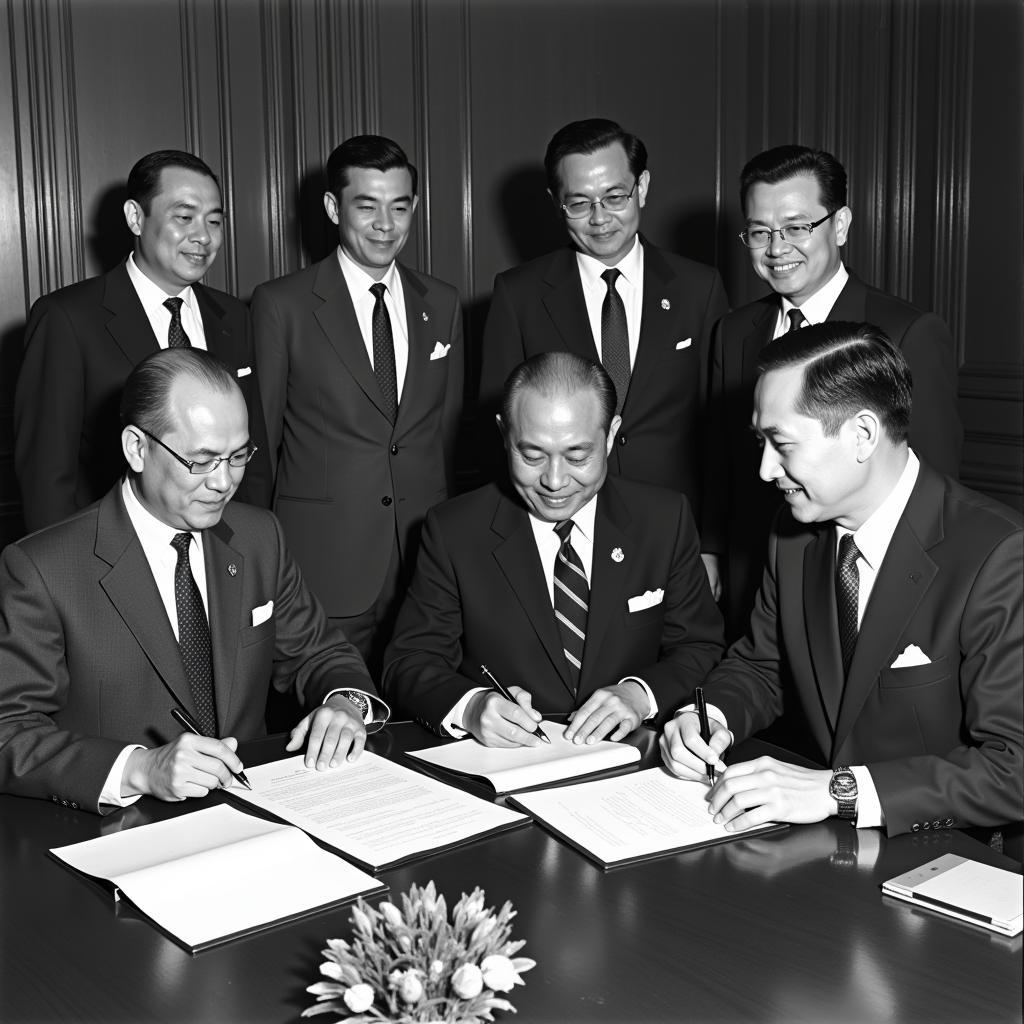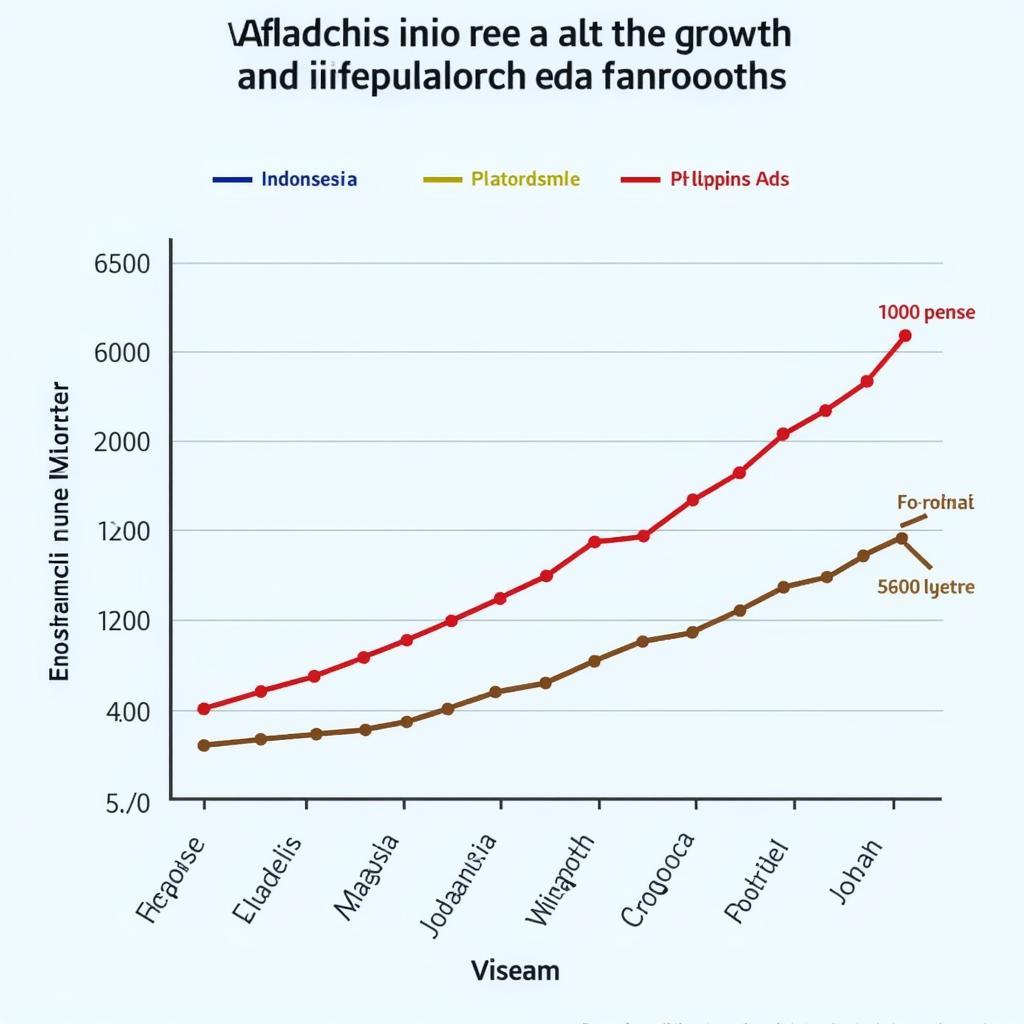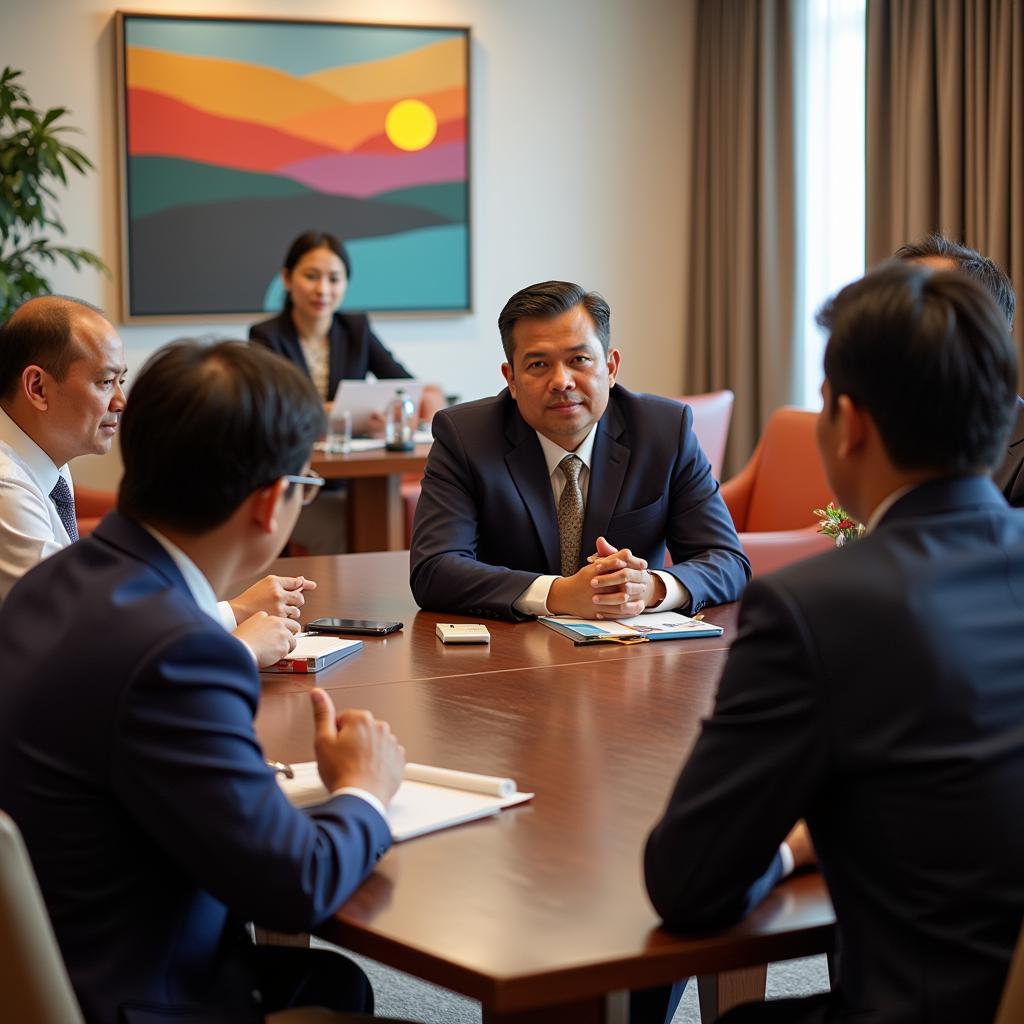The term “ASEAN 4” refers to the four founding members of the Association of Southeast Asian Nations (ASEAN): Indonesia, Malaysia, the Philippines, and Singapore. These countries signed the Bangkok Declaration in 1967, marking the official establishment of ASEAN and laying the foundation for regional cooperation and integration in Southeast Asia.
The Birth of a Regional Powerhouse: Understanding ASEAN 4
The formation of ASEAN 4 was driven by a shared desire to promote peace, stability, and economic growth in the region. In the aftermath of World War II and amidst the Cold War tensions, these four nations recognized the importance of regional solidarity and cooperation to navigate the geopolitical challenges and foster development.
 ASEAN 4 Founding Members Signing the Bangkok Declaration
ASEAN 4 Founding Members Signing the Bangkok Declaration
The Bangkok Declaration outlined the key principles of ASEAN, including respect for national sovereignty, non-interference in internal affairs, and peaceful resolution of disputes. These principles remain the bedrock of ASEAN’s interactions today, guiding its approach to regional issues and fostering a spirit of dialogue and cooperation.
The Economic Significance of ASEAN 4
From the outset, economic cooperation was a core objective for ASEAN 4. These nations recognized the potential for enhanced trade and investment through regional integration. Over the decades, ASEAN 4 has implemented various initiatives to reduce trade barriers, promote investment flows, and foster economic linkages within the group.
The establishment of the ASEAN Free Trade Area (AFTA) in 1992 was a landmark achievement, significantly reducing tariffs and promoting intra-regional trade. This move, coupled with other economic cooperation initiatives, contributed to the remarkable economic growth experienced by ASEAN 4 nations over the past few decades.
 Chart Depicting Economic Growth of ASEAN 4 Nations
Chart Depicting Economic Growth of ASEAN 4 Nations
Today, ASEAN 4 stands as a testament to the power of regional cooperation. These four nations have not only achieved remarkable economic progress but have also played a pivotal role in shaping the regional architecture and fostering peace and stability in Southeast Asia.
ASEAN 4: A Legacy of Cooperation and Progress
The legacy of ASEAN 4 extends beyond economic achievements. It lies in the establishment of a regional platform for dialogue and cooperation, fostering a sense of shared identity and purpose among Southeast Asian nations.
The success of ASEAN 4 paved the way for the expansion of ASEAN, which now encompasses ten member states. The principles of cooperation and dialogue championed by the founding members continue to guide ASEAN’s engagement with its partners and its approach to regional challenges.
Looking Ahead: ASEAN 4 in a Changing World
As ASEAN navigates a complex geopolitical landscape and grapples with emerging global challenges, the role of ASEAN 4 remains crucial.
“The strength of ASEAN lies in its unity and its ability to find common ground despite differences,” states Dr. Maria Theresa Cruz, a prominent Southeast Asian scholar. “The founding members, with their historical experience and leadership, have a crucial role to play in ensuring ASEAN remains cohesive and relevant in a rapidly changing world.”
 Image Depicting ASEAN Leaders Collaborating for the Future
Image Depicting ASEAN Leaders Collaborating for the Future
ASEAN 4’s commitment to dialogue, cooperation, and regional integration serves as a model for other parts of the world striving for peace, stability, and shared prosperity. As ASEAN continues to evolve, the legacy of its founding members will undoubtedly continue to shape its future and its role on the global stage.
